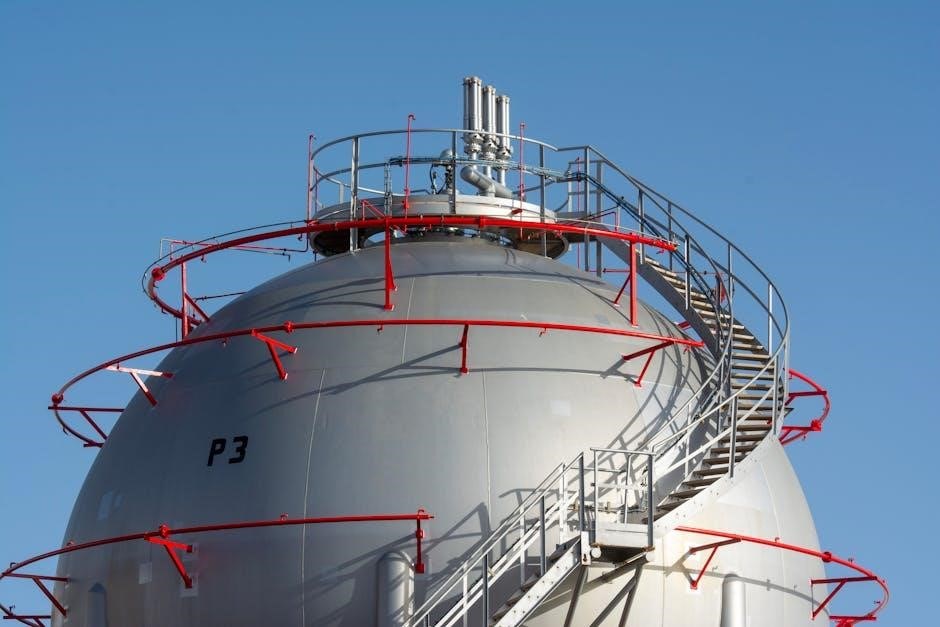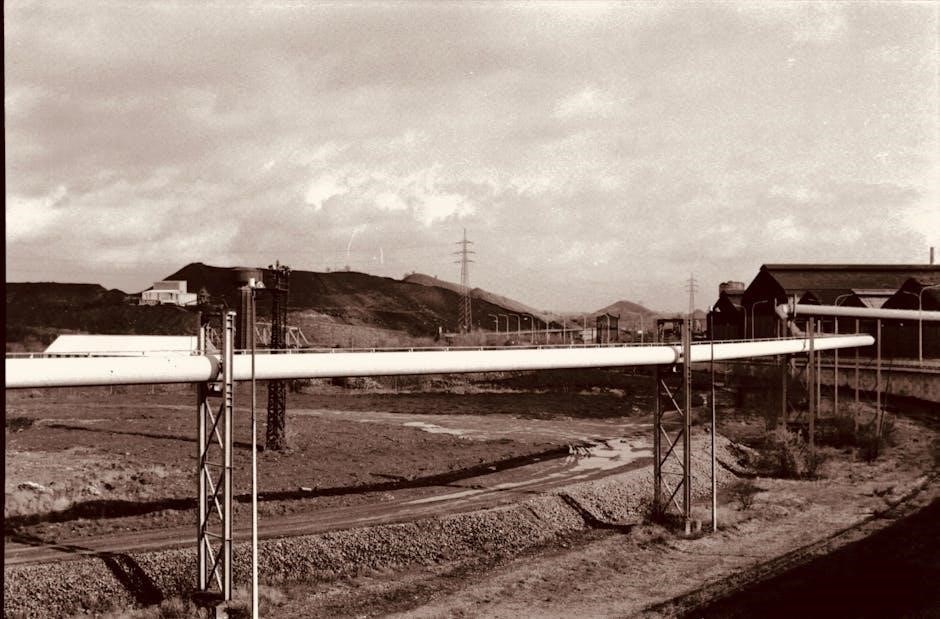Dominique Morisseau, born in 1978, is a renowned American playwright and actress from Detroit. Known for her powerful storytelling, she has gained acclaim for works like The Detroit Project and Pipeline, addressing social justice and personal struggles with lyrical depth.
1.1 Background and Biography
Dominique Morisseau, born on March 13, 1978, in Detroit, Michigan, is a celebrated American playwright, actress, and educator. She rose to prominence for her compelling narratives that often explore themes of social justice, identity, and the African American experience. Morisseau’s work is deeply rooted in her Detroit upbringing, which has influenced her authentic storytelling style. She is best known for her trilogy, The Detroit Project, which includes Paradise Blue, Skeleton Crew, and Detroit ’67. Her play Pipeline, written in 2017, has garnered significant attention for its unflinching examination of the school-to-prison pipeline and its impact on Black families. Morisseau has also worked in television, serving as a story editor on Showtime’s Shameless. Her dedication to storytelling has earned her numerous accolades, including a MacArthur Foundation “Genius Grant” in 2018. Married since 2013, Morisseau continues to be a vital voice in contemporary theater, advocating for marginalized communities through her art. Her work resonates with audiences nationwide, solidifying her legacy as a transformative playwright.
1.2 Impact on Contemporary Theater
Dominique Morisseau has emerged as a powerful voice in contemporary theater, using her plays to address systemic inequities and amplify marginalized voices. Her work, particularly Pipeline, has sparked crucial conversations about the school-to-prison pipeline and its devastating impact on Black communities. By blending lyrical language with unflinching realism, Morisseau challenges audiences to confront uncomfortable truths about race, education, and justice. Her ability to balance personal narratives with broader societal issues has made her plays resonate widely, earning her a reputation as one of today’s most important playwrights. Pipeline, which premiered at Lincoln Center Theater in 2017, has been praised for its emotional depth and timely relevance. Morisseau’s influence extends beyond the stage; her work has been adapted for television and continues to inspire new generations of writers and artists. Her commitment to storytelling as a tool for social change has solidified her impact on contemporary theater, ensuring her plays remain a vital part of the cultural conversation.

Plot and Themes of “Pipeline”
Pipeline delves into the school-to-prison pipeline, focusing on Nya, a teacher, and her son Omari, who faces expulsion and incarceration. The play examines race, education, and family dynamics, highlighting systemic injustices and emotional struggles.
2.1 The School-to-Prison Pipeline
Dominique Morisseau’s Pipeline shines a stark light on the school-to-prison pipeline, a systemic issue disproportionately affecting Black students. The play highlights how zero-tolerance policies, racial bias, and underfunded schools funnel marginalized youth into the criminal justice system. Nya, a dedicated teacher, fights to save her son Omari from this cycle, illustrating the emotional and societal toll of this crisis.
The pipeline is depicted as a destructive force, eroding opportunities for Black males. Omari’s expulsion and arrest for a school fight symbolize the broader erasure of Black youth’s potential. Morisseau examines how schools fail to nurture these students, instead criminalizing their behavior.
Through Nya’s perspective, the play exposes the tension between educators’ efforts to uplift students and the oppressive systems they face. The pipeline is not just a legal issue but a cultural one, rooted in systemic racism and neglect. Pipeline demands accountability, urging society to confront the cycles of oppression that trap Black youth. By blending personal narrative with societal critique, Morisseau underscores the urgency of reform. The play serves as a powerful call to dismantle the pipeline and reimagine education as a path to liberation, not incarceration.
Character Breakdown
In Pipeline, Dominique Morisseau crafts complex characters navigating personal and systemic struggles. Nya, a dedicated teacher and single mother, fights to save her son Omari from the school-to-prison pipeline. Other characters, including Laurie and Dun, add depth to the story’s emotional landscape.

3.1 Nya
Nya, a central character in Pipeline, is a Black woman in her mid-to-late 30s, portrayed as a single mother and a dedicated public high school teacher. Her commitment to her students is evident, yet she is deeply conflicted, struggling to balance her professional responsibilities with her personal life. Nya’s desperation to save her son, Omari, from the school-to-prison pipeline drives much of the play’s tension. Her character embodies the resilience and vulnerability of a mother fighting against systemic inequality and societal expectations. Through Nya, Morisseau explores themes of motherhood, identity, and the challenges faced by Black women in inner-city environments. Nya’s internal battles and relationships with her son and others reveal the emotional toll of navigating a fractured education system and the criminal justice system. Her story serves as a powerful lens through which the audience views the broader societal issues addressed in the play.
3.2 Omari
Omari, the son of Nya, is a central character in Pipeline, portrayed as a teenager navigating the challenges of adolescence and systemic inequality. As a student at a private boarding school, Omari is caught in a precarious situation when he is involved in a fight, leading to his potential expulsion. His story intersects with the broader theme of the school-to-prison pipeline, as the consequences of his actions threaten to derail his future. Omari’s character is multifaceted, showing both vulnerability and defiance. He struggles with feelings of alienation, caught between the expectations of his mother and the harsh realities of his environment. His relationship with Nya is complex, marked by love, frustration, and misunderstandings. Through Omari, Morisseau explores the emotional and psychological toll of systemic racism and the limitations of institutional support. His journey highlights the fragility of youth and the resilience needed to survive in a world designed to marginalize him. Omari’s story serves as a poignant reminder of the human cost of the school-to-prison pipeline.
3.3 Other Key Characters
Other key characters in Pipeline include Laurie, a fellow teacher and confidant of Nya, who offers a different perspective on the challenges faced by educators in under-resourced schools. Laurie’s pragmatism contrasts with Nya’s idealism, creating a nuanced dialogue about systemic issues. Another significant character is Dun, Omari’s father, whose absence and complicated relationship with Nya add layers to the family’s dynamics. His role highlights the impact of parental absence on Omari’s struggles. Additionally, Xavier, Omari’s friend, provides a peer perspective on the pressures of adolescence and the systemic barriers they face. Xavier’s character underscores the universality of the challenges Omari encounters. These supporting characters enrich the narrative, offering diverse viewpoints that amplify the play’s exploration of race, education, and family. Their interactions with Nya and Omari deepen the emotional resonance of the story, illustrating the interconnectedness of personal and societal struggles. Through these characters, Morisseau crafts a compelling portrait of a community grappling with systemic inequality.

Historical Context
Dominique Morisseau’s Pipeline is deeply rooted in the historical and ongoing struggles of systemic racism and educational inequality faced by Black communities in America. The play sheds light on the school-to-prison pipeline, a system that disproportionately affects Black students, funneling them from underfunded schools into the criminal justice system. This issue has its origins in centuries of racial oppression, from segregation to modern-day policies that criminalize Black youth. Morisseau’s work reflects the legacy of the Civil Rights Movement and the continued fight for educational equity, highlighting how systemic barriers perpetuate cycles of poverty and incarceration. The play also resonates with the Black Lives Matter movement, amplifying the voices of those demanding justice and reform. By situating the story within this historical framework, Morisseau underscores the urgency of addressing these issues and the need for collective action to dismantle oppressive systems. Pipeline serves as a powerful commentary on America’s past and present, urging audiences to confront the realities of racial injustice.

Production History
Pipeline by Dominique Morisseau premiered at Lincoln Center Theater in New York City in 2017, directed by Lileana Blain-Cruz. The production was met with critical acclaim and marked a significant moment in Morisseau’s career. The play was later broadcast on PBS as part of the “Live From Lincoln Center” series in 2018, making it accessible to a broader audience. Since its debut, Pipeline has been produced at numerous theaters across the United States, including Everyman Theatre and Gallery Players, where it continued to garner praise for its powerful storytelling and timely themes. The play’s success led to its inclusion in various theatrical seasons, solidifying its place in contemporary American theater. Its production history highlights the growing recognition of Morisseau’s work and the importance of her voice in addressing social justice issues through the arts.
Creative Team and Direction
The creative team behind Pipeline played a crucial role in bringing Dominique Morisseau’s powerful story to life. Lileana Blain-Cruz, known for her innovative direction, helmed the original production at Lincoln Center Theater, infusing the play with a dynamic and emotionally charged atmosphere. The cast, including Karen Pittman, Morocco Omari, and Tasha Lawrence, delivered standout performances that captured the complexity of the characters. Pittman, in particular, received praise for her portrayal of Nya, the determined mother at the heart of the story. The production design, including set, lighting, and sound, was crafted to reflect the gritty urban environment that shapes the characters’ lives. Blain-Cruz’s direction emphasized the play’s lyrical dialogue and the raw emotional depth of its themes. The creative team’s collaboration resulted in a production that not only highlighted Morisseau’s masterful writing but also elevated the urgent social issues at the play’s core. Their work was instrumental in making Pipeline a landmark production in contemporary theater.
Critical Reception
Dominique Morisseau’s Pipeline received widespread critical acclaim for its poignant portrayal of the school-to-prison pipeline and its emotional depth. Critics praised Morisseau’s lyrical prose and her ability to tackle urgent social issues with both nuance and candor. The play was hailed as a powerful exploration of systemic racism, family dynamics, and the struggles faced by Black communities. Reviewers noted the production’s ability to balance intensity with moments of tenderness, creating a deeply humanizing experience for audiences. The cast, particularly Karen Pittman, received high praise for their performances, which were described as raw, authentic, and emotionally resonant. The play’s direction by Lileana Blain-Cruz was also commended for its innovative staging and ability to amplify the emotional weight of the story. Many critics highlighted Pipeline as a necessary and timely work, earning it a place as one of the most important plays of its time. The production was also recognized for its cultural significance, solidifying Morisseau’s reputation as a leading voice in contemporary theater.

Educational Resources
For educators and students exploring Pipeline, numerous resources are available to deepen understanding of the play’s themes, characters, and historical context. Study guides, such as the Asf Study Guide Pipeline, provide detailed analyses of key scenes, character motivations, and the broader societal issues addressed in the play. These materials often include discussion prompts, historical background on the school-to-prison pipeline, and insights into Morisseau’s writing style. Additionally, resources like the Pipeline Character Breakdown offer in-depth examinations of Nya, Omari, and other characters, helping students analyze their roles and development. Teachers can also access materials that connect the play to real-world issues, such as statistics on the school-to-prison pipeline and its impact on marginalized communities. Many educational institutions and theaters that have produced Pipeline offer companion resources, including panel discussions, interviews with the cast and crew, and lesson plans tailored for high school and college-level instruction. These tools make Pipeline an invaluable text for exploring themes of justice, education, and family dynamics in the classroom.
Dominique Morisseau’s Pipeline offers a powerful commentary on systemic injustice and personal resilience, sparking vital conversations about education and equality. Her work continues to resonate, solidifying her legacy as a voice for marginalized communities and a catalyst for change.
9.1 Legacy of “Pipeline”
Dominique Morisseau’s Pipeline has left an indelible mark on contemporary theater, shining a light on the school-to-prison pipeline and its devastating impact on Black communities. The play’s unflinching portrayal of systemic racism and its emotional depth have resonated widely, sparking critical acclaim and necessary conversations. By blending personal narratives with broader societal issues, Morisseau has created a work that not only reflects the struggles of marginalized voices but also amplifies them.
The play’s legacy extends beyond the stage, as it has become a vital educational tool, used in schools and workshops to discuss race, justice, and education. Its adaptation into a PBS broadcast further expanded its reach, ensuring that its message continues to inspire and educate audiences.
Moreover, Pipeline has solidified Morisseau’s reputation as a fearless and compassionate storyteller, earning her numerous accolades, including a MacArthur Genius Grant. The play’s enduring relevance ensures that it will remain a powerful voice in the fight against injustice, continuing to inspire future productions and adaptations.
9.2 Future Productions and Adaptations
The enduring relevance of Pipeline ensures its continued presence on stages and screens. With its universal themes and timely commentary, the play is poised for future productions across the globe. Theater companies are drawn to its powerful narrative, making it a staple in contemporary repertoire.
Adaptations are also on the horizon, with discussions underway for film and television versions. These adaptations promise to expand the play’s reach, introducing its vital message to new audiences. Dominique Morisseau’s involvement in such projects ensures fidelity to the original work’s intent.
Educational institutions are also embracing Pipeline, incorporating it into curricula and staging productions that foster dialogue about social justice. This grassroots approach ensures the play’s legacy will grow, inspiring the next generation of artists and activists. With its impact undeniable, Pipeline remains a cornerstone of modern storytelling, continuing to resonate with audiences and spark change.
